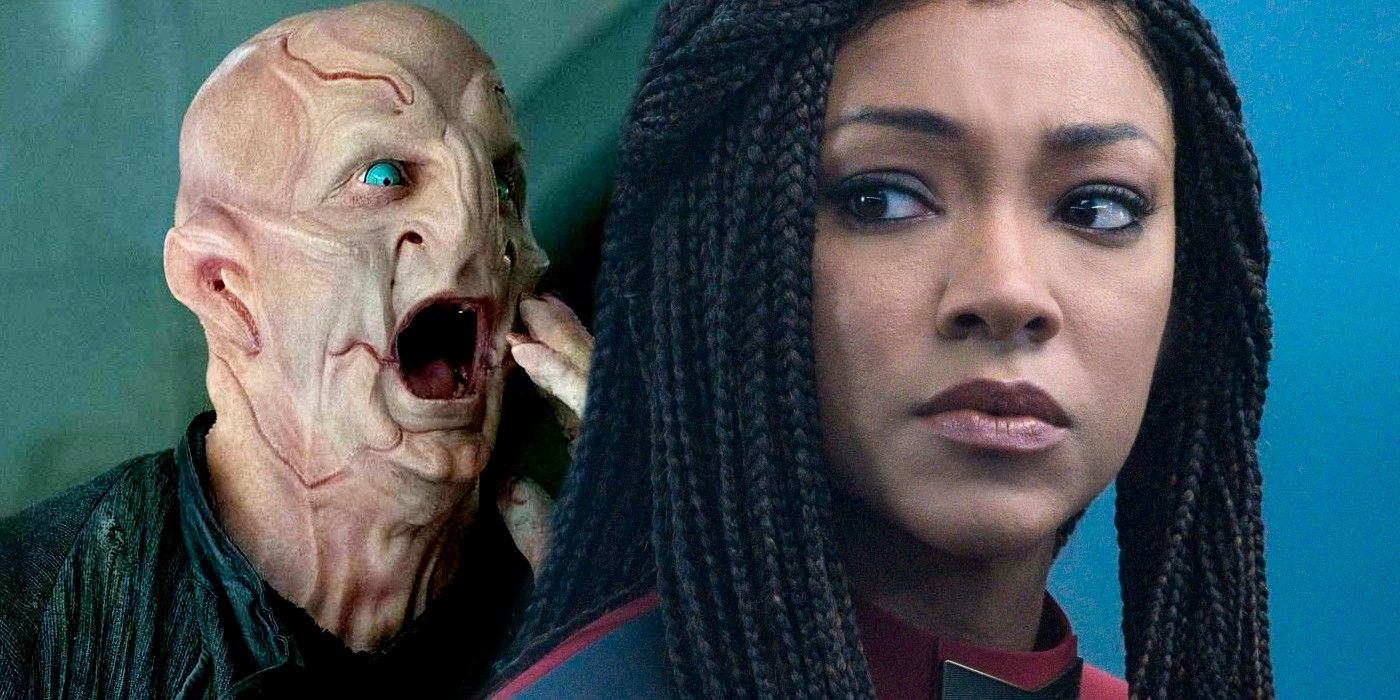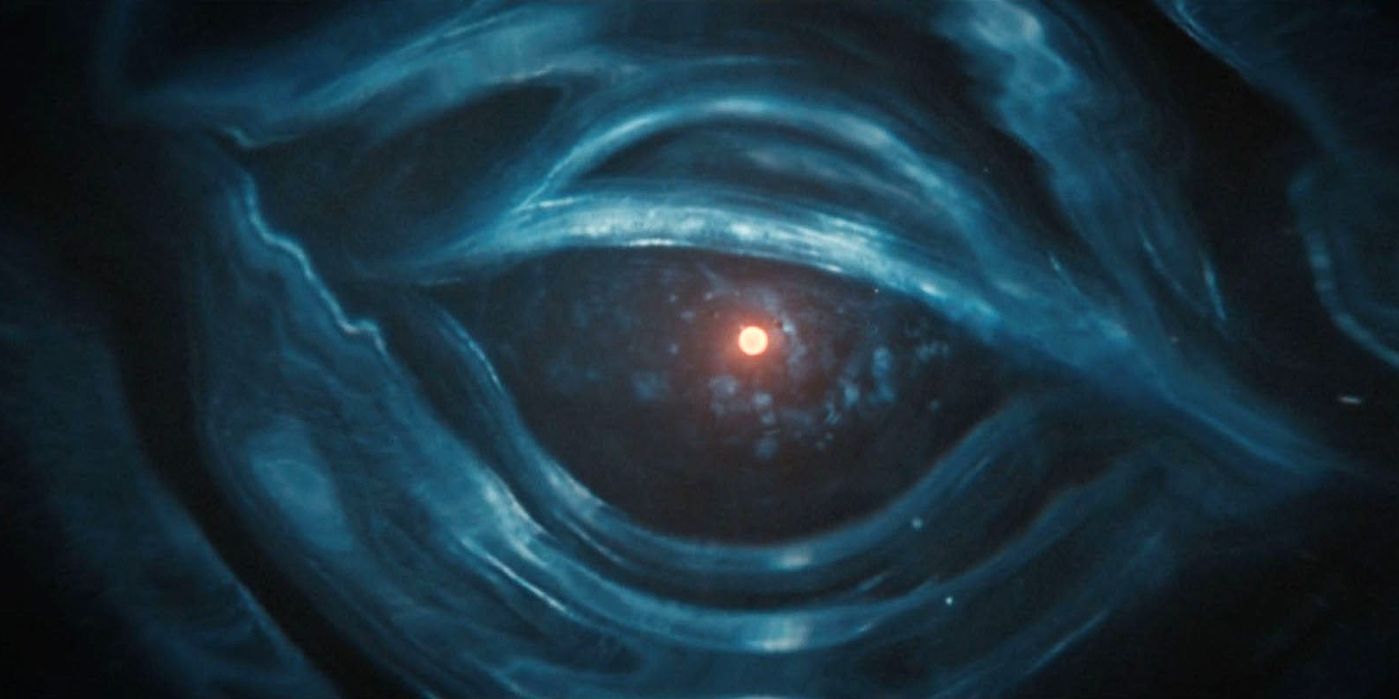Star Trek: Discovery's heroes have only just recovered from sorting out the Burn, but the DMA now presents an even greater threat - here's why season 4's gravitational anomaly works better. Everybody is going to die in Star Trek: Discovery season 4... unless Captain Burnham and her crew have anything to say about it, that is. While conducting routine dilithium transport duties, Discovery stumbled across an anomalous cloud of dark matter five light years long, which will happily tear apart whatever lies in its path. As the entire galaxy comes under threat from this erratic, mysterious weapon constructed by as-yet-unidentified forces, Discovery's crew find themselves on the vanguard of uncovering the truth behind the Dark Matter Anomaly (DMA).
Audiences will likely pick up on similarities between Star Trek: Discovery season 4's DMA and season 3's Burn event. Upon arriving in the 32nd century, the Disco mob discovered how every piece of dilithium in the sector suddenly turned inert, blowing up countless mid-warp vessels and rendering long-range space travel impossible. This "Burn" event and the DMA are both galaxy-wide issues affecting every known planet in Star Trek: Discovery's far-future. Both are seemingly-natural disasters impossible to explain using conventional science, and both threaten post-apocalyptic outcomes. While season 3 and 4's main threats have plenty in common, however, Star Trek: Discovery's DMA works better than the Burn as a central storyline for one vital reason - the DMA is an active threat whereas the Burn was historic.
When Discovery came screeching into the 32nd century and learned about the Burn, it soon became clear to them that dilithium was rarer than a red-shirt watching Star Trek's closing credits. The Federation is torn apart and entire colonies are forced into servitude for villainous groups like the Emerald Chain. Burnham, Saru and the rest of their crew begin investigating the Burn's origin, but their motivations come across awkwardly in Star Trek: Discovery season 3. Figuring out what caused the Burn is great - but was never guaranteed to actually fix the galaxy's predicament. As narrative convenience would have it, solving the Burn did unearth a whole planet full of fresh, problem-solving dilithium, but that outcome was far from guaranteed. The Discovery might've deduced the phenomenon was triggered by a freak space storm, and that information would've been absolutely useless to the various populations in dire need of supplies and fuel.
The biggest problem with Star Trek: Discovery season 3's Burn storyline was investigating the cause of an event that happened 100 years prior, and trying to somehow make that relevant to the present situation. Discovery's personnel sometimes seemed more bothered about satisfying their own curiosity than actually helping out isolated planets. Star Trek: Discovery season 4's DMA fares considerably better in this regard. Rather than retroactively seeking answers about a century-old phenomenon, Burnham's crew is facing a scientific, galaxy-shaking event developing in the here and now. They're trying to stop the DMA before it inflicts damage on a galactic scale, gathering as much data as possible for that very purpose. Racing against time not only adds an urgency that Star Trek: Discovery season 3's 100-year-old Burn inquiry lacked, but also makes Discovery's current mission more relevant to innocent civilians. Understanding the DMA and how to stop it is the only way to protect lives.
As a season-long threat, therefore, Star Trek: Discovery season 4's DMA has the Burn beaten. Watching the catastrophe unfold in real-time is far more compelling than Discovery playing catch-up on a century of history then piecing together the puzzle in reverse. And the link between solving the DMA's origin riddle and tangibly helping people is much clearer than for season 3's Burn, where Burnham and her crew barely justified investigating ancient history while entire planets suffered hunger and oppression.
Star Trek: Discovery season 4 airs Thursdays on Paramount+.


